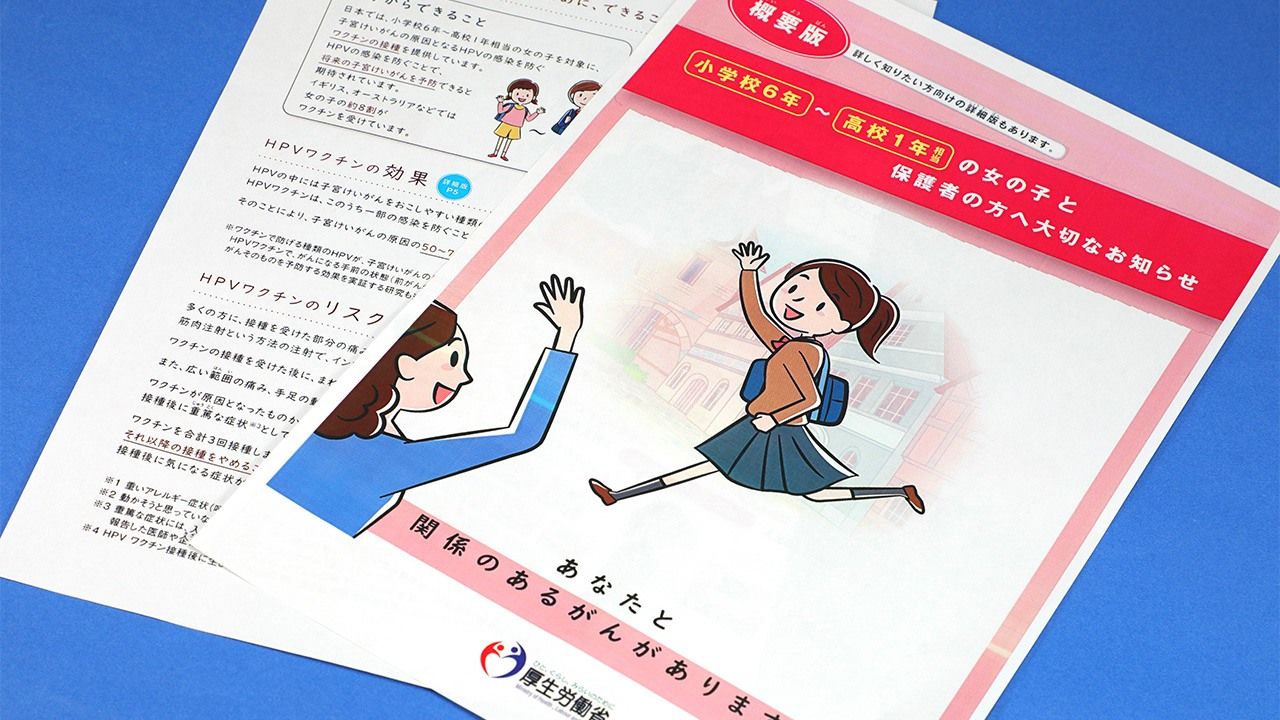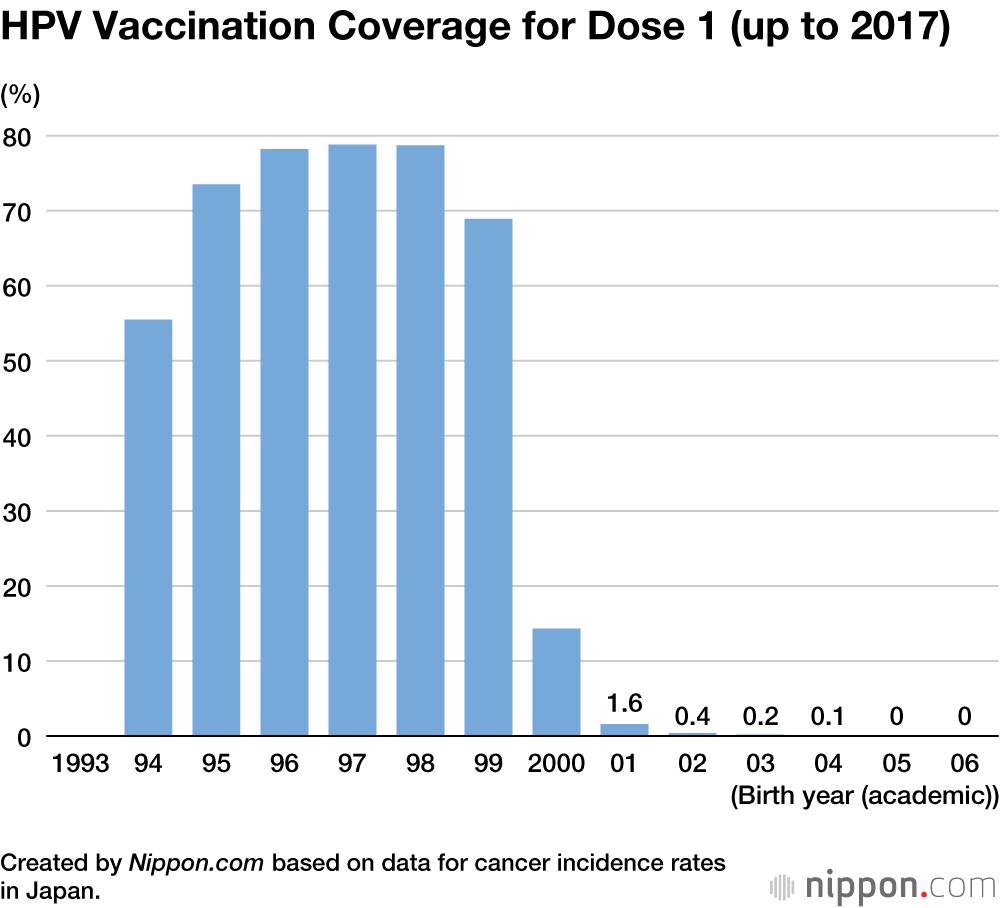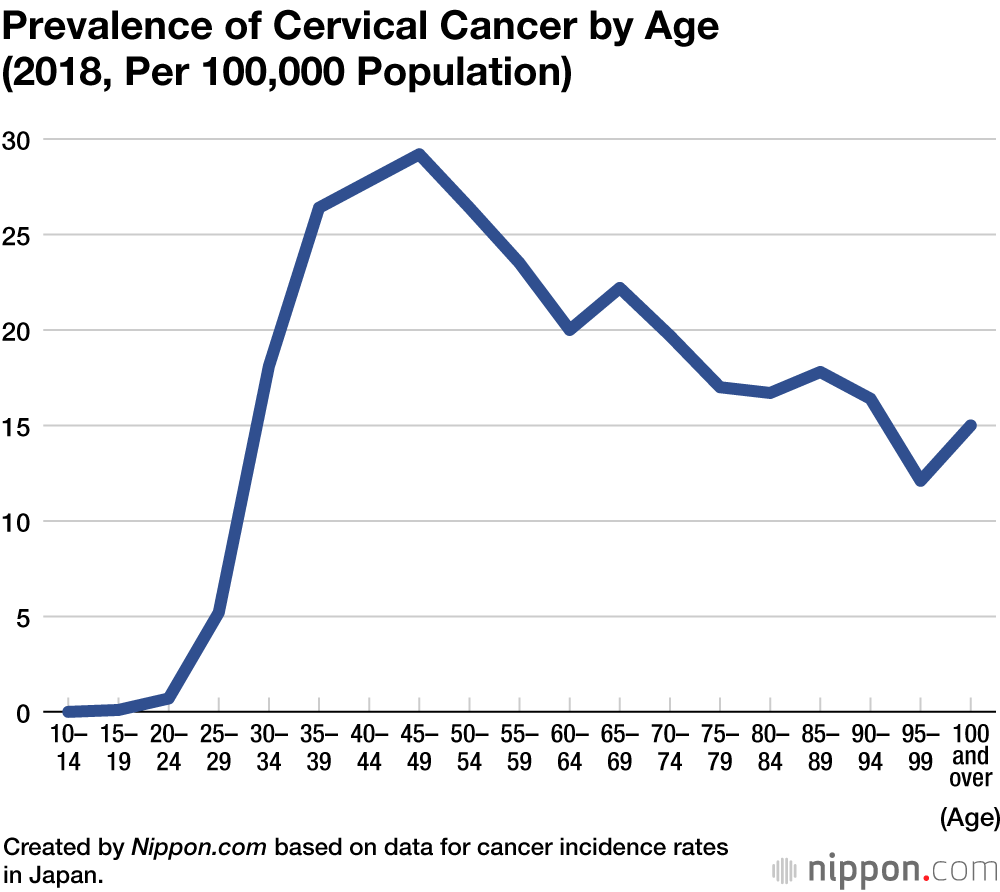
Active Promotion of HPV Vaccine for Teen Girls Resumes in Japan After Nine-Year Hiatus
Society Health- English
- 日本語
- 简体字
- 繁體字
- Français
- Español
- العربية
- Русский
In April 2022, after a hiatus of nine years, the Japanese government resumed actively promoting vaccinations against the human papillomavirus, or HPV, which causes cervical and other types of cancer.
Although the HPV vaccination was routinely introduced in April 2013, reports of people developing diverse symptoms after receiving it, including pains in different areas of the body and movement disorders, led to widespread media coverage. In June that same year, the Ministry of Health, Labor, and Welfare decided to suspend active recommendation of the vaccination.
According to the ministry, the vaccine is recommended by the World Health Organization and, as of November 2020, 110 countries have introduced it into their national immunization programs. Although the vaccination coverage rates in Canada, Britain, Australia, and other countries have reached around 80%, it remains less than 1% in Japan due to local authorities refraining from promoting the vaccination.
Following the suspension, various studies investigated post-vaccination symptoms both in Japan and overseas. An MHLW study group deliberated the results and in November 2021 decided to resume active promotion.
From April, local authorities nationwide began providing information to girls from the sixth grade of elementary school, when they turn 12, through the first grade of high school, when they turn 16, who are eligible for the routine vaccination. The MHLW has also released a leaflet explaining about the vaccination (Japanese only).
Moreover, local authorities will promote catch-up vaccinations to be provided at public expense for those who missed out on the opportunity while active recommendation was suspended.
According to the Ministry, cervical cancer affects around 11,000 women every year in Japan, with approximately 2,900 dying, and a further 1,000 needing to have their uterus removed before the age of 30, making it impossible for them to get pregnant. The rate of prevalence starts to increase from when patients are in their twenties and is highest for those in their late forties.
(Translated from Japanese. Banner photo: The HPV vaccination leaflet published by the Ministry of Health, Labor, and Welfare. © Jiji.)

